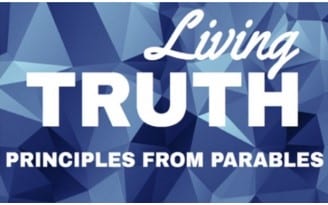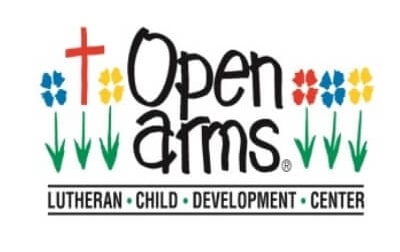
Matthew 18:21-35
September 17, 2023
I think all of us would agree that one of the most enjoyable parts of our worship service is the Children’s Message. We listen very carefully during that time as I think most of us are curious as to what the children will say, what they are thinking, and I’m sure from time to time we even learn a few things from them as we admire their trust in people and their unquestioning faith in Jesus as their Savior. Jesus said in our Gospel lesson last week from Matthew 18 said that unless we become like children, we will never enter the kingdom of heaven. Now, how hard can it be for adults to become like children? After all, we have all been children before and many of us have raised children. The answer is: very hard, especially since there are some serious stumbling blocks for us. One of those stumbling blocks involves conflict. When children disagree and fight or argue, think about what we do or say to them as adults. We usually try to get them to stop fighting as fast as we can, we make them look at each other, and then we say something like, “Stop it! Now, say you’re sorry. I don’t’ care who started it or whose fault it is, I want you to apologize and make up right now.” And many times that works, and they go back to being friends and playing together. However, if that doesn’t work, then we might separate them until they settle down and are ready to apologize. Once they apologize, they will usually move on and play with each other as if nothing happened.
But we don’t usually do that as adults – that is, apologize quickly and move on as if nothing happened. No, as adults we hold grudges, we think about retaliation, and we destroy relationships without trying to work things out. For adults, extending and accepting forgiveness is a difficult thing for us to do, because it always costs us something. It costs us our anger, our right for revenge, and our road to superiority. Forgiveness becomes much more difficult the more adult-ish we become. Maybe that’s why Jesus never said, “One must become like an adult in order to enter the kingdom of heaven.”
In our Gospel lesson for today, after explaining the process of forgiveness when someone sins against you, which we read last week in Matthew 18, Jesus told Peter a parable to help him and all of us understand that forgiveness needs to be offered on an unlimited basis. And the story that Jesus tells goes something like this in modern day terms. The kingdom of heaven is like a rich banker who decided to go over his books one day and discovered that one of his employees had borrowed one trillion dollars. In verse 24, Jesus says, “10,000 talents;” nobody knows the exact value of 10,000 talents in American dollars, but it’s supposed to represent an enormous amount of money that would be impossible for anyone to pay back over their lifetime. So in modern day terms we’ll say one trillion dollars.
In the story the banker calls the employee into his office and says, “Look, unless you can come up with one trillion dollars today, I’m going to have to turn you in to the authorities.” The employee gets on his knees and begs the banker, not to reduce the debt or allow him to declare bankruptcy, but to give him some more time to come up with the money – as though he could actually pay it all back. “Well,” said the banker, “I’m feeling very generous today. Tell you what I’m going to do. I’m just going to go ahead and credit one trillion dollars to your account. I’m cancelling the debt. Don’t worry about paying me back, just consider it a gift.” But soon after the employee left, the banker heard a lot of noise outside his office. He went out to check on it and found the forgiven employee grabbing one of the tellers and yelling at the top of his lungs, “You owe me $2 and I need it right now!” The banker was very upset with the behavior of the forgiven employee and immediately had him arrested and thrown in jail for life.
The point that Jesus is making is that if you want to start keeping records of forgiveness, you’re always going to end up in the red. If books were kept, we would find, like the employee, that the debt we’ve been forgiven by God is insurmountable. What we have to forgive each other cannot compare to what God has forgiven us. In other words, if God kept track and counted all of the sins we have ever committed, we would never get out of debt.
But God doesn’t keep track. Records are not kept in the kingdom of heaven. Forgiveness flows freely and heavily upon us every day from our loving God, just like those summer thunderstorms that come rolling through our community with pouring rain. As those summer rains enable our trees to grow and our grass to remain green, forgiveness always brings new life even where there are signs of death. Forgiveness makes all of our relationships new once again.
In fact, forgiveness is the basis of our life together. Without it, we couldn’t function as a church, as families, or as a society. Forgiveness changes us as individuals and as a community, because we learn by forgiving and being forgiven, to live with others.
However, forgiveness doesn’t mean ignoring sin or letting evil go unchecked. Instead, it means addressing sin and dealing with sin, so that evil no longer infects our relationships. I know it is difficult at times to forgive, but the amazing thing about Jesus is that He forgives us even for the times we don’t perfectly forgive others. His gift of forgiveness gives us a remarkable strength to forgive others. But when we pray in the Lord’s Prayer, “Forgive us our trespasses as we forgive those who trespass against us,” we are not asking God to forgive us because we have first forgiven others, as though we can earn God’s forgiveness. Instead, our forgiving others is an indication or proof of our faith in God that He has first forgiven us, and that He is at work in us in our forgiving.
Notice, though, that Jesus did not say, “Forgive and forget.” Forgiveness is not forgetfulness. If someone sins against you in a big way, you can forgive them, but you probably will be more careful trusting that person in the future. If someone steals money from you, you can forgive them, but you’ll likely be more careful about leaving your wallet out or a door unlocked. In October 2006, many of you may remember the story of a gunman who broke into an Amish schoolhouse and proceeded to shoot and kill 5 young girls and them himself. It was a horrible, evil tragedy. But the Amish community not only honored and buried their daughters, they also offered forgiveness to the shooter’s widow and children left behind by this awful event. About one half of those in attendance at the shooter’s funeral were members of the Amish community, and even as they offered condolences to the widow and her children, they offered the gunman’s family a portion of the offerings that had been given to their community in memory of their children. The evil of the act was never condoned, but the forgiveness poured out from a hurting community to a hurting family was real, absolute, and unconditional.
While forgiveness may be one of the most difficult things for us to do, none of us can truly “forgive” without knowing the forgiving love that God has given to all of humanity through the perfect gift of His Son, Jesus. No one can be truly forgiving of others until they have understood the power of forgiveness that comes from the cross. Jesus’ death on the cross made God’s love for humanity personal, and it made the forgiveness God offered a personal gift to each one of us. So instead of saying, “forgive and forget,” maybe we should say, “forgive and remember.”
Remember that we have been forgiven a debt by God that we could never pay. Remember to forgive often and completely, since our forgiveness in Jesus is total and complete. Remember that forgiveness changes us as individuals and as a community, because we learn by forgiving and being forgiven to live with others. And remember that for Jesus forgiveness was a matter of life and death, but for us forgiveness is simply a matter of faith. Forgiveness is a gift that is to be given and received often, whenever requested, and wherever needed. And when you struggle to forgive, give it to God whose forgiveness knows no end – for this is what the kingdom of heaven is like.


